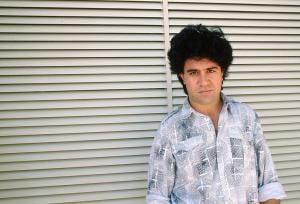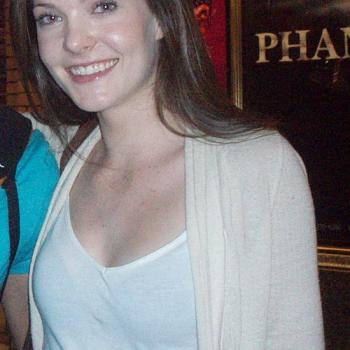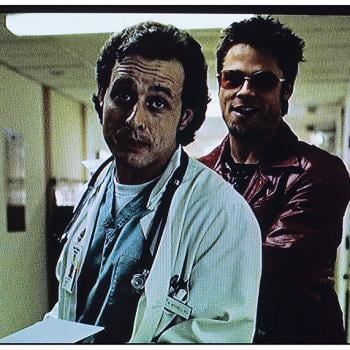
Source: Wikimedia user Gorupdebesanez
License
It feels bad to say, “it just didn’t connect with me.” Where there is technical brilliance, there is not always emotional connection. Sometimes this experience stems from emptiness, the so-called “exercise in style.” Not always, though. On occasion, I can watch a movie, appreciate its technical merits, marvel at the performances, respect its script, and still come away devoid of feeling. All the worse when this is a melodrama like Pedro Almodóvar’s Volver (2006).
As with many of Almodóvar’s films, here we have a family of women in which each generation mirrors the next. Raimunda (Penélope Cruz), her fourteen-year-old daughter Paula (Yohanna Cobo), and her husband Paco (Antonio de la Torre) eek out an existence in a small apartment outside Madrid. Colorful and not drab (even the poor live among vivacious colors in Almodóvar movies), their surroundings contradict the clear tensions in the marriage. Paco is an unemployed drunk who won’t stop peeping on Paula. Raimunda works as both a prep cook and a hotel cleaning lady.
Her sister illegally cuts and styles hair in her own apartment. To put matters as if this were a trailer from the aughts: their past—including the death of their parents in an early-morning inferno—haunts them in ways you can’t imagine. It isn’t easy. But they learn to value family and the hard work it takes to come—and stay—together. On the surface, you can hardly ask for a surer hand. Each detail complements the next, as if building to some overwhelming question.
We open in the cemetery of the family’s ancestral village, where local women, rubber gloves on and buckets at their feet, fastidiously scrub the tombs of the dead. A dastardly eastern wind, portending disaster (so we are told), blows. Paula complains about the oddity of the custom as Almodóvar whisks us to the sisters’ aunt’s home, where the batty old woman talks about their mother as if she were alive. Then again, there’s an unaccounted-for exercise bike in the bathroom. And, once home, Paco’s eyes keep wandering over to Paula’s body.
Quite the set-up. Early on, I found myself entranced. We’ve got the painful migration to the countryside, the war over tradition, the tantalizing possibility of a ghost story, and the stirrings of a mystery boiled over amidst Almodóvar’s vivid colors and beautiful, rustic Spanish facades. But the film loses its steam. At over two hours, the movie drags. Much of the next hour and more is a constant introduction of new elements without any clear indication what the actual mystery is. Something is going on with the mother’s ghost; matters with Paco hit a fever pitch that fizzles out until the climax. The pot boils so fully and with so many different sub-plots that it runs over. No individual point managed to capture my attention because nothing received the time it deserved.
Many movies weave together various sub-plots with no problem. Why the issue here, then? To my mind (and here I am thinking out loud as much as I am arguing anything), the movie lacks an anchor. It has no focus. It veers from one character to another, resisting my attempts to focus, to think for too long about any one thing.
You might say “this is a melodrama! Soap-operatic twists are the whole point!” You’d be right. But that only works if I’ve bought into the characters. And, for a film that contains sexual assault, violence, hauntings, adultery, deceit, daytime TV shows, and a cancer diagnosis, I felt surprisingly little attachment to the characters and their plights. The movie’s chipper mood obviated any sense of danger. The comedy destroys any elevation of feeling we might expect from its melodramatic content.
I joked to a friend that the Almodóvar movies I have seen feel like Fassbinder films if he weren’t evil. So much of what I love about the German director is his commitment to the reality of pain, not as a passing moment, but as something that marks life, an almost sadistic attachment to life’s most torrid truths. That a melodrama makes. Volver not so much. It goes down too easily and with too many and too light flavors. I couldn’t bring myself to shed a tear, either in happiness or sadness. I was, in a word, left empty.












